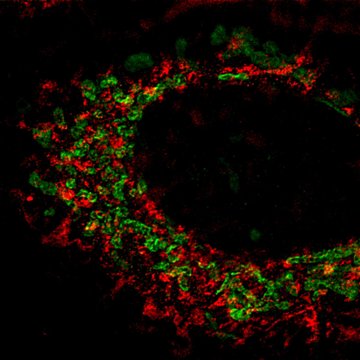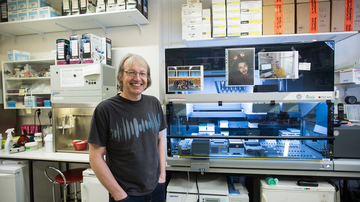About us
Proteome is defined as the complete set o proteins present at a given time in organism, tissue or cell. Proteomics aim at quantitative and qualitative description of proteomes and their dynamic changes
Using the most advanced proteomic methods based on effective separation methods and high-resolution mass spectrometry, identification and quantification of up to 10.000 proteins can be accomplished in a single experiment. This opens a new way toward understanding of physiological and pathological processes on molecular level. Employing proteomic approaches (based on effective protein and peptide separation methods and mass spectrometry) our team attempts to describe molecular mechanisms of human diseases and identify novel diagnostic or prognostic biomarkers.
Our team employs modern proteomic analyses to study global changes of cellular proteomes in order to describe the molecular mechanisms and proteins involved in human physiology and pathology. Using high-resolution separation methods such as peptide IEF-IPG combined with nano-LC in combination with high-resolution mass spectrometry, we can monitor the quantitative and qualitative changes of thousands of proteins. We use proteomic approaches to study diverse processes, such as the molecular mechanisms of drug resistance in cancer cells or the events responsible for heart failure development and progression. Proteomic methods also enable us to specifically alter proteins present in a patient's blood or other body fluids - i.e. potential disease biomarkers. We are specialized in proteomic analyses (2-DE, LC-MS, iTRAQ, SILAC, analysis of protein complexes and membrane proteins), however, our expertise covers wide fields of molecular and cell biology, including cell cultures and animal models.
Current projects:
- Molecular mechanism of acquired drug resistance in lymphomas
- Molecular processes associated with heart failure
- Development of new methods for proteomic analysis of transmembrane proteins
Group Profile (Home Institution): https://www.petraklab.cz/








